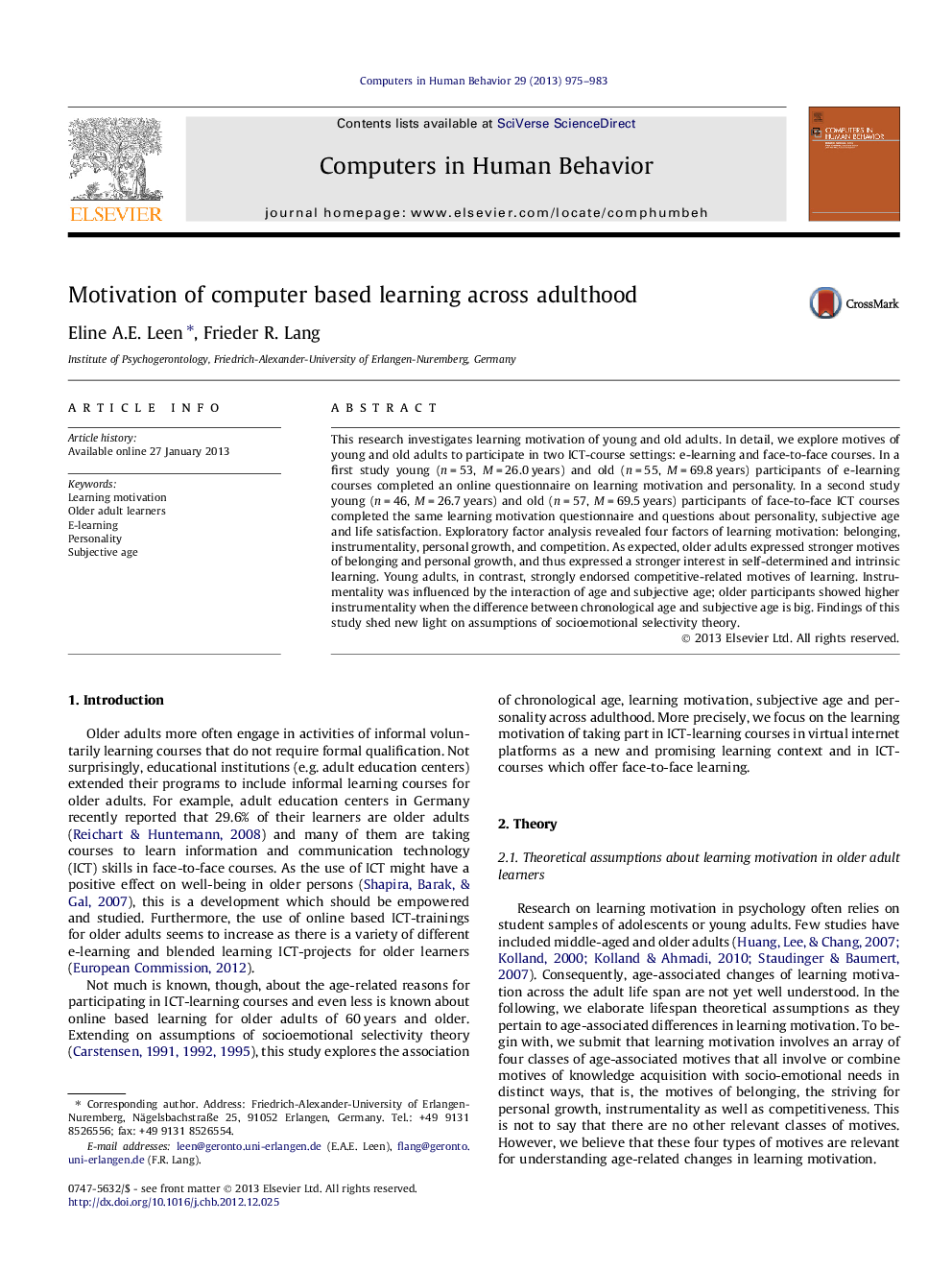| کد مقاله | کد نشریه | سال انتشار | مقاله انگلیسی | نسخه تمام متن |
|---|---|---|---|---|
| 351234 | 618465 | 2013 | 9 صفحه PDF | دانلود رایگان |

This research investigates learning motivation of young and old adults. In detail, we explore motives of young and old adults to participate in two ICT-course settings: e-learning and face-to-face courses. In a first study young (n = 53, M = 26.0 years) and old (n = 55, M = 69.8 years) participants of e-learning courses completed an online questionnaire on learning motivation and personality. In a second study young (n = 46, M = 26.7 years) and old (n = 57, M = 69.5 years) participants of face-to-face ICT courses completed the same learning motivation questionnaire and questions about personality, subjective age and life satisfaction. Exploratory factor analysis revealed four factors of learning motivation: belonging, instrumentality, personal growth, and competition. As expected, older adults expressed stronger motives of belonging and personal growth, and thus expressed a stronger interest in self-determined and intrinsic learning. Young adults, in contrast, strongly endorsed competitive-related motives of learning. Instrumentality was influenced by the interaction of age and subjective age; older participants showed higher instrumentality when the difference between chronological age and subjective age is big. Findings of this study shed new light on assumptions of socioemotional selectivity theory.
• Four motives were found: personal growth, belonging, competition, instrumentality.
• Older adults learn because of belonging and personal growth motives.
• Young adults score higher on competition learning motives.
• Instrumentality motives are influenced by the interaction of age and subjective age.
Journal: Computers in Human Behavior - Volume 29, Issue 3, May 2013, Pages 975–983